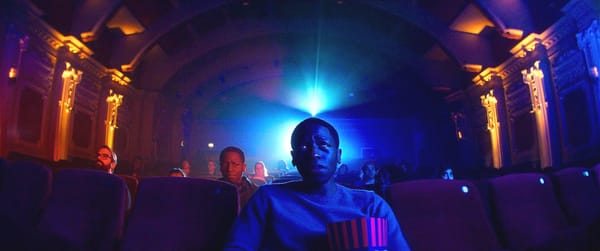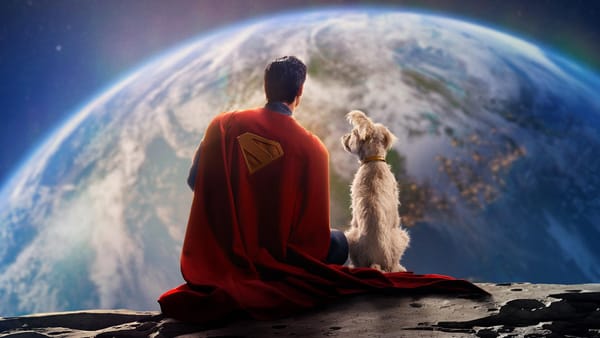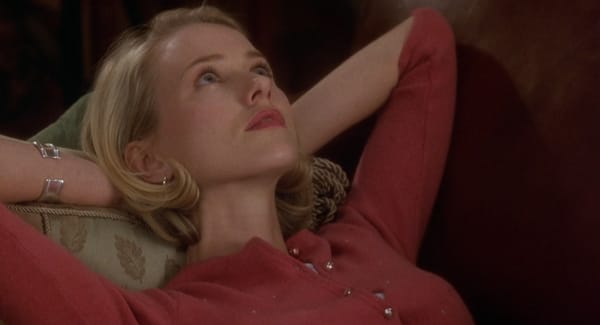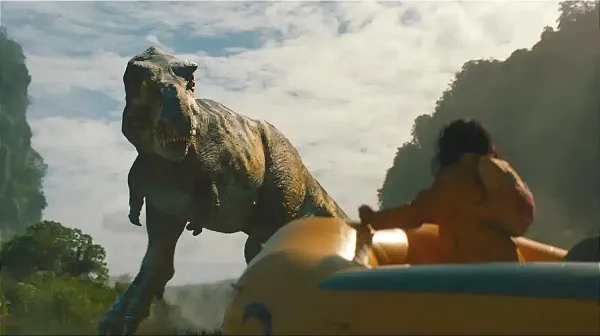Islands in the (Slip)Stream
A personal one, with nods to "Moonrise Kingdom" and "The Lighthouse"

Today’s newsletter is about islands real and metaphorical – islands of land surrounded by water and islands of memory surrounded by life. And movies (because this is a movie newsletter) – movies feel like islands, too. They’re discrete archipelagos of experience, each 90- to 120-minutes long, after which we take a ferry back to the real world, shaken or amused or wanting our money back.
I spent this past weekend on two islands, in fact and in memory, one on fresh water, the other on salt. The first was on a lake in central Maine where I went to summer camp a half century ago; one of those WASPy old boys’ camps that’s been around since the early 1900s and that has built up traditions and lingo impenetrable to outsiders. One of my grown kids and their partner had been hired to close the place down for the winter and work on construction projects for the coming year, and my wife and I were invited up to stay in one of the cabins.
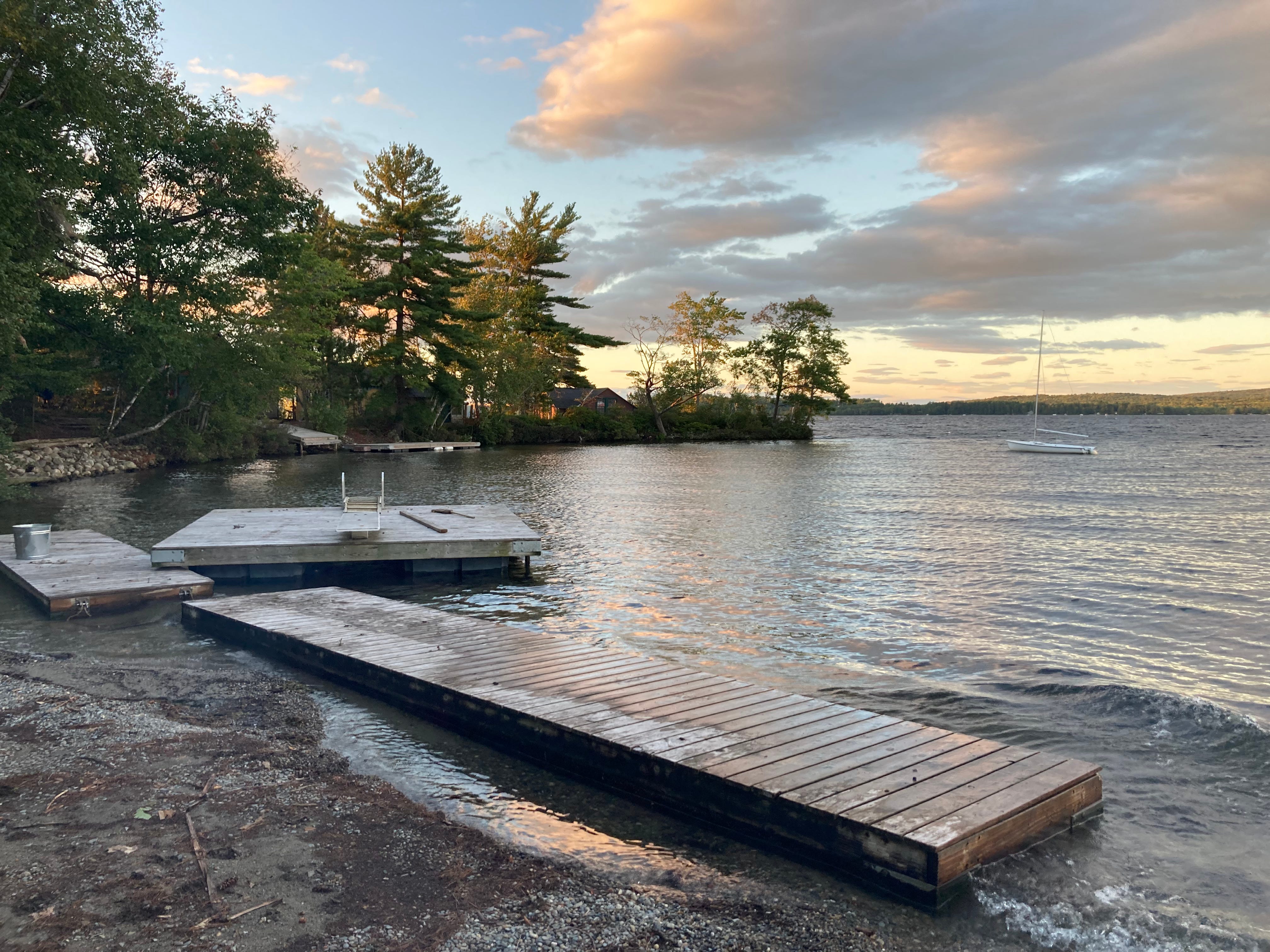
A summer camp in the off season has an elusive melancholy. Tents have been struck from their platforms; canoes are lined up in the dining hall. The kitchen feels too big for the meals you’re cooking, like the one where Buster Keaton boiled eggs in “The Navigator.” Migrating phoebes perch on the railings, on their way from somewhere to somewhere else. And where am I, who am I in all this? A sixty-something husband and father revisiting scenes of his youth or the youth himself shocked to find himself an old man? When I arrived at the camp in 1968, I was a ten-year-old boy who’d just lost his father, who lived in books and in his head, and while I always felt a little out of joint with the burly Maine woodsman ethos of the place, I’m forever grateful to the people there for taking me to wild places and teaching me how to live in them. (It helped that the counselors were all unreconstructed hippies who taught us Firesign Theatre sketches around the campfire.)
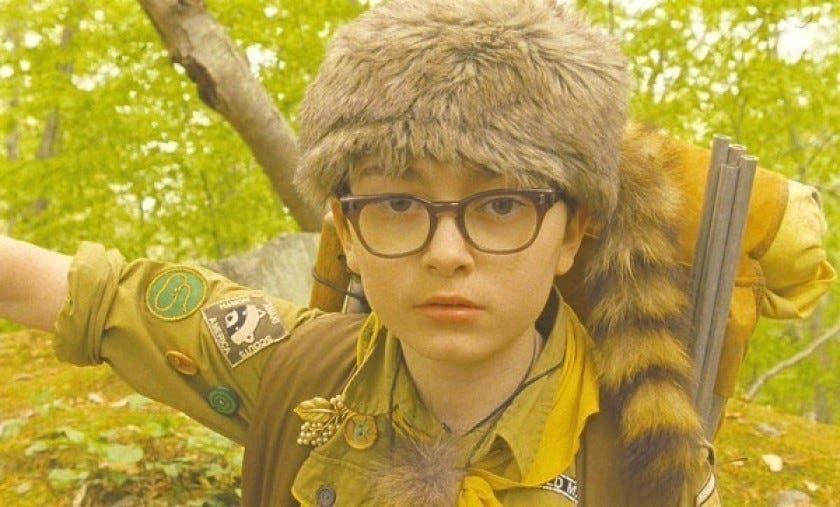
The first time I saw Wes Anderson’s “Moonrise Kingdom” (2012, rentable everywhere except Netflix), it was like opening a dusty photo album of that island, that camp, and my hapless bespectacled boyhood self. The movie was a comeback of sorts for the director after a series of increasingly bloodless exercises in over-controlled whimsy; the first in a while that allowed itself to feel its feelings instead of art directing them. “Moonrise Kingdom” is about a misfit Khaki Scout (Jared Gilman, above) who goes AWOL from his troop along with a local girl his own age (Kara Hayward); they set up an adolescent Eden on one end of the island while his fellow scouts and an all-indie-star cast of grown-ups searches for them.
Why does this movie set my nostalgia antenna aquiver? Why does Anderson’s island blur into my own? The 1960s setting and a gravely self-conscious kid hero are factors, but I think it’s more to do with the places I could go to be by myself, to sit with the ceaseless lake and my thoughts, while realizing for the first time that I was part of a larger group, a motley of kids and adults who had my back while I had theirs, and we were all figuring it out as we went along. As in “Moonrise Kingdom,” the place cast us out and reeled us back in.
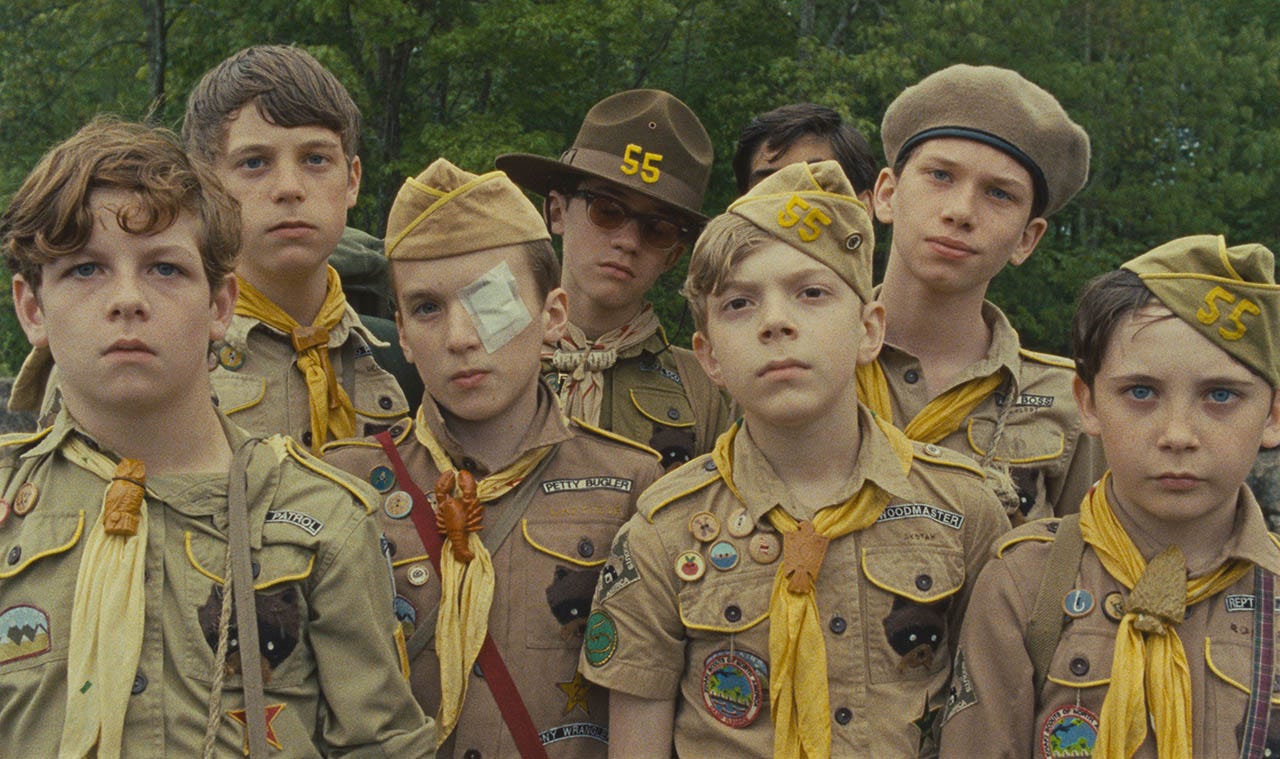
The family who owned the camp also owned a small island off the Maine coast, a 90-minute drive away, and they’d send us there during the season for a few days, for activities and lobster bakes. When you got too old to be a camper at the lake, you could sign up for the sea island work crew, a stroke of genius on the part of the owners where parents would pay them to put their sons to hard labor restoring the buildings of an early 19th-century lifesaving station. I did that for four weeks during the summer of 1972, as part of a fractious, jostling group of 15-year-old boys who bonded and argued and fought. We’d sneak bottles of Boone’s Farm back from the mainland in our laundry bags for late-night parties on the rocks; the 23-year-old guy overseeing us realized he was as much babysitter as foreman, and he was miserable. But I learned carpentry and shingling techniques, so it wasn’t a complete loss.
This past weekend we did a day trip there on the second day, and I stepped foot on the island for the first time in 48 years. The lifesaving station still stood where, 150 years earlier, men set out in rowboats to rescue ships foundering in raging storms a mile offshore. A lighthouse keeps watch on the other end of the island. It’s automated now with solar power and a Vega Industries VLB-44 LED beacon but from 1950 to 1982 it was manned by the Coast Guard and before that by civilian lighthouse keepers all the way back to 1805.
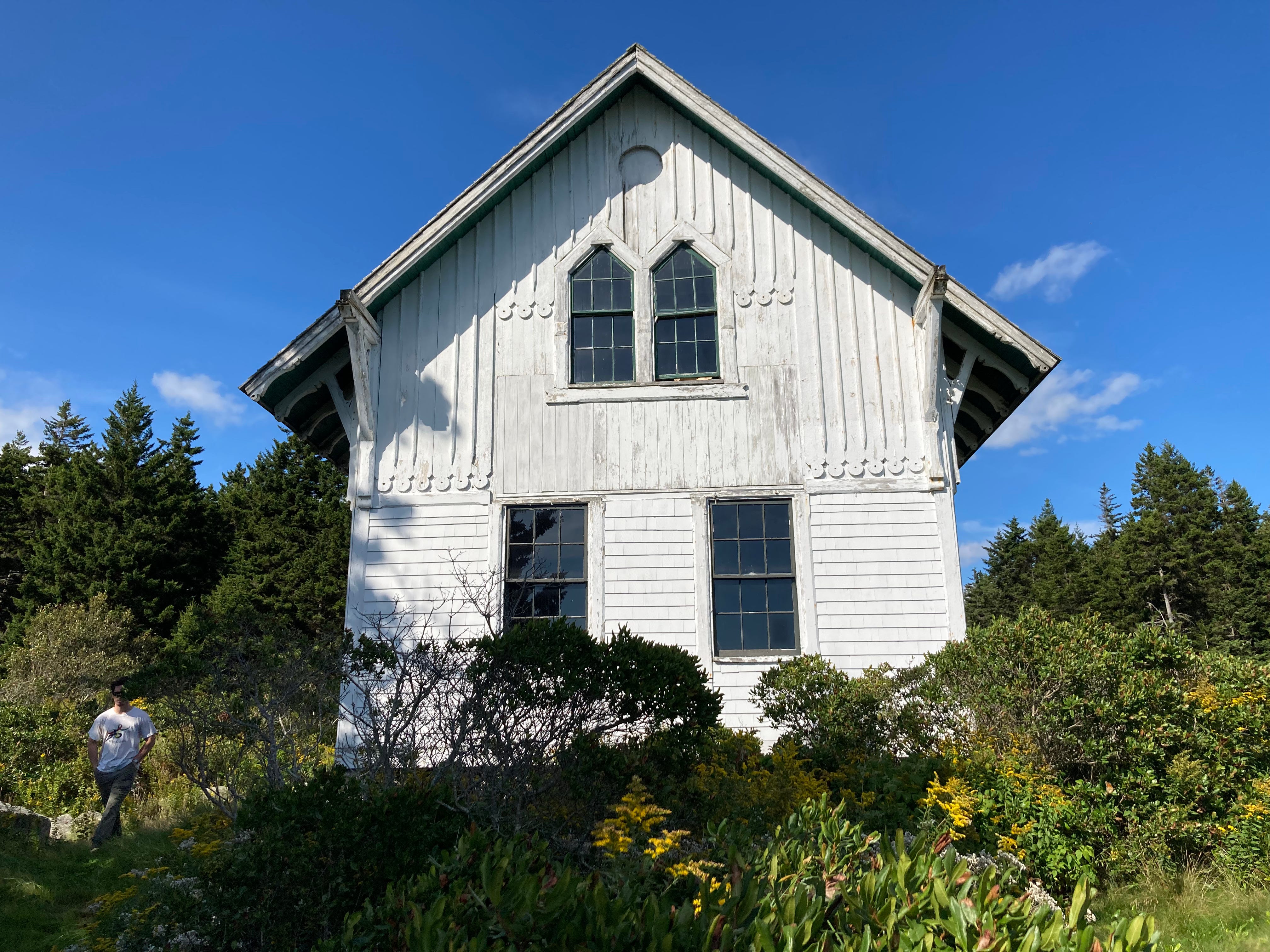
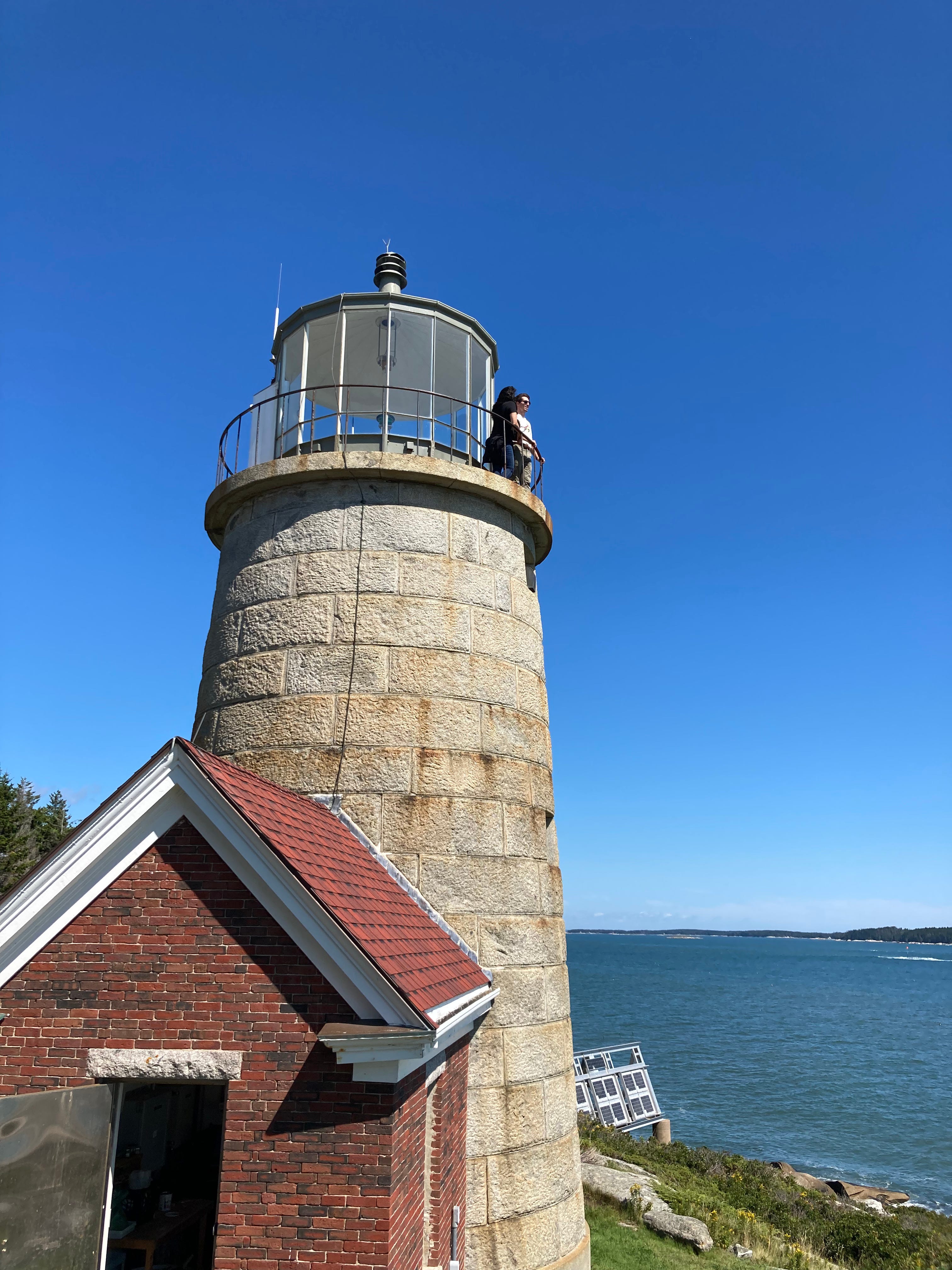
Of course I thought of Robert Egger’s 2019 Grand Guignol psychodrama “The Lighthouse” (available on Amazon, Apple TV, and elsewhere), and not only because the kids were happily referencing it throughout the day. The weather on the Maine coast ensorcels island life, wraps it in fog and smudges days together to a never-ending chorus of bell buoys; and it’s easy to lose the thread of mainland rationality, whether you’re Robert Pattinson and Willem Dafoe (below) running an 1890s lighthouse or a bunch of upper-middle-class boys scraping paint off an old building in 1972. No, we didn’t kill a totemic seagull or go at each other with axes, as they do in the movie, and not one of us was as interesting a human daguerreotype as Pattison’s duplicitous Ephraim Winslow or Dafoe’s shambolic Thomas Wake – a great gargoyle of a performance, that. But put boys on an island without much supervision and you’re bound to end up with “Lord of the Flies” sooner or later. I was happy to spend the rest of that summer at a nice, boring arts camp outside Boston.
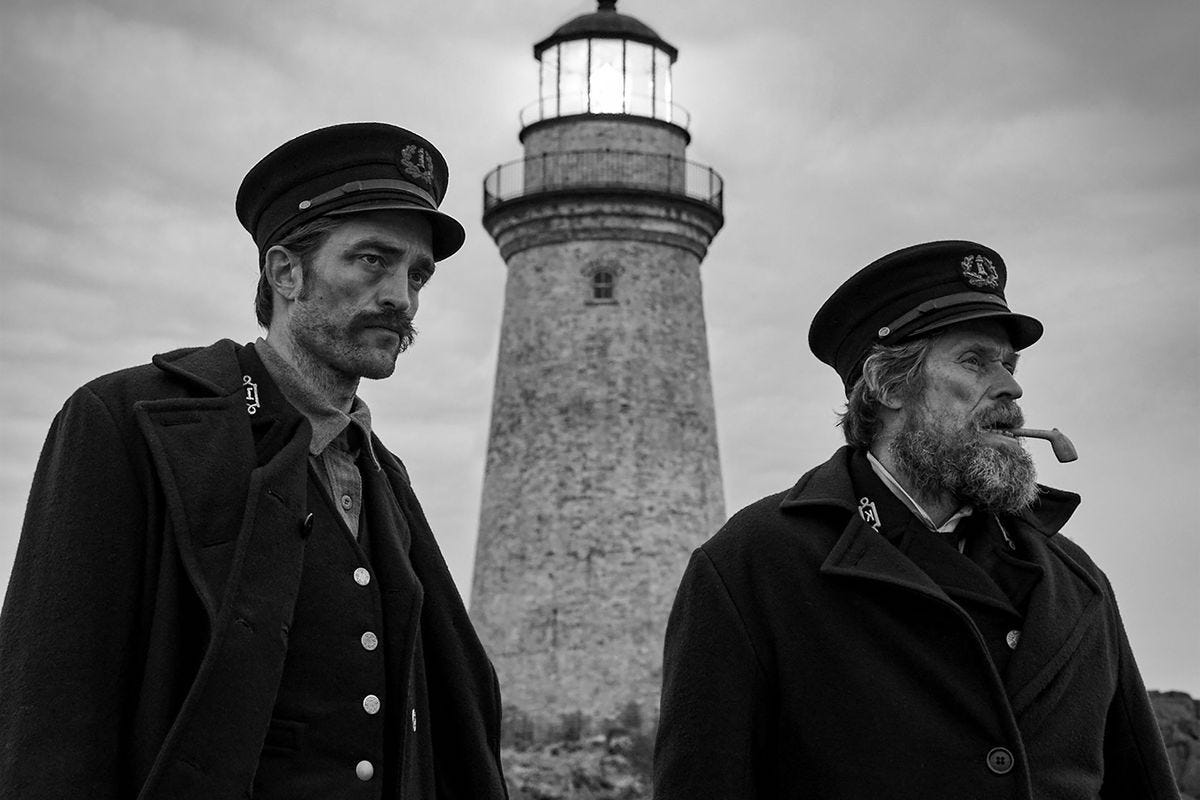
The weather during our visit this time was bright and windy, a perfect island day, with the three outer islands of Penobscot Bay – Metinic, Metinicus, Monhegan – placid and clear on the rim of the horizon. Unlike in “The Lighthouse,” which to my mind has a thrillingly stylized first hour that tips over into exhausting chaos in the second, we could see the mainland and return to it. And we did, carrying fresh islands of memory to add to the archipelagos within.
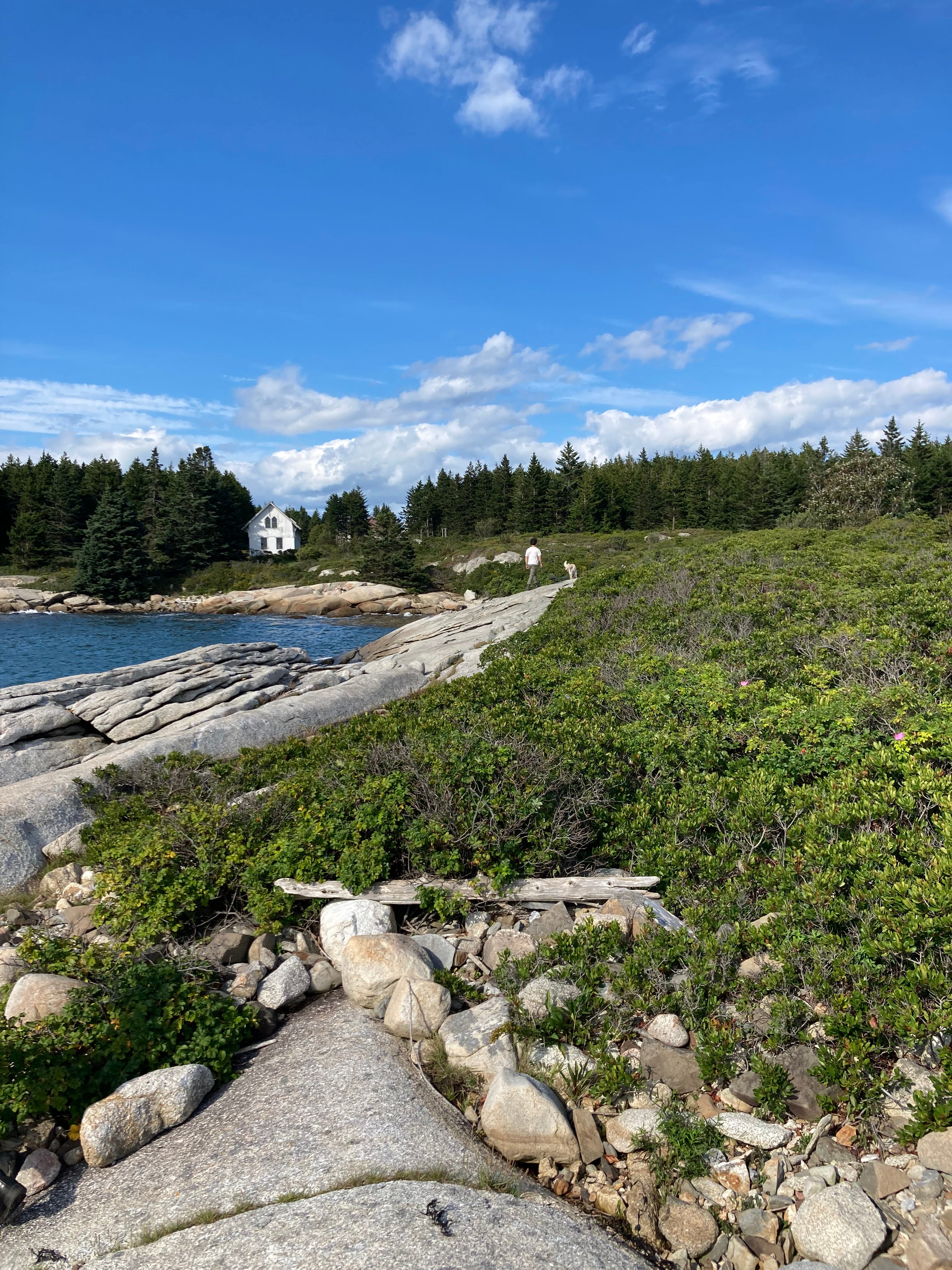
If you enjoyed this edition of Ty Burr’s Watch List, please feel free to share it with friends.
Or subscribe. Thank you!


